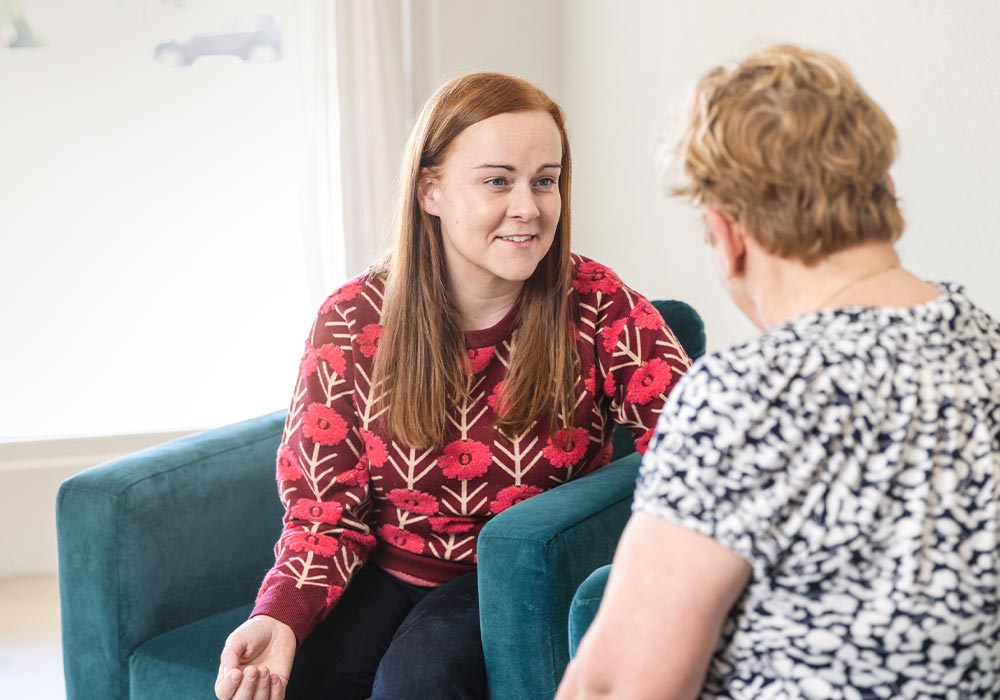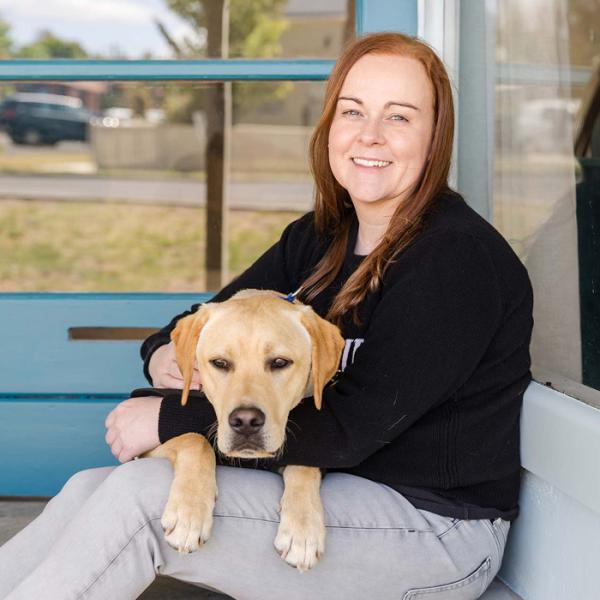Engaging in individual therapy with dogs in Ballarat
Whether you’ve engaged with a psychologist before or this is your first time, it can feel like a daunting prospect! Some individuals come to therapy with a clear idea of what their challenges are and what they’d like to work on, while others struggle to know where to start. Wherever you are in your mental health journey, our psychologist will meet you at that point and collaborate with you to develop realistic goals. You are always in charge of the process. If you want lots of work, we’ll give you lots of work. If you need to move slowly, we’re with you all the way for as long as you need us.
What does a treatment process look like?
A treatment plan will depend on several factors, such as what your presenting concerns are, what you would like to focus on, and the choices you make about your therapy modalities. Initially, your psychologist will listen and ask questions to understand your story and get to know you. We will develop goals for treatment outcomes with you and discuss options for a treatment plan. This could be a mix of modalities or just one (such as cognitive behaviour work or a schema therapy program), and, of course, you might choose to have one-on-one animal therapy as part of your treatment. We are realistic about the pace at which clients feel they can work and the resources they have available.
We may often recommend an initial treatment plan across 5-6 sessions spaced fortnightly, then review progress to determine whether further fortnightly or monthly sessions are optimal. Clients will often choose a treatment that is more intensive to begin with, then reduce or continue with ‘top up’ sessions when they feel ready. Once you build a relationship with your psychologist, they are here to support you any time you need to come back and see us! We are comfortable referring between our team if you would like to work with someone new or elsewhere in the region if we feel your needs are best supported by another psychologist (with more specific training in a particular area).
In a practical sense, your therapy seasons could include a mix of general counselling support (talking through challenges), education about psychological theories and principles that help to understand yourself better, or practical activities to develop skills like coping, stress relief or social skills. You may be offered in-between session work (if you feel up to it) or prescribed online programs that complement your treatment in the clinic.
Be sure to have a look at our other animal therapy services and treatment areas, including men’s mental health and schema therapy.


